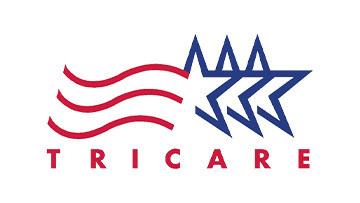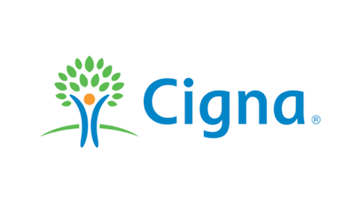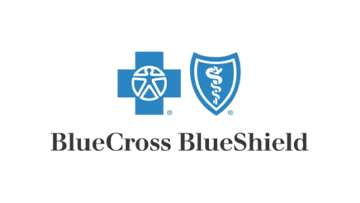Give us a call1 (888) 850-5161
LSD Addiction
Long-term LSD use ca cause persistent psychosis, triggering ongoing episodes of delusions and paranoia. It can also lead to flashbacks or long-lasting visual disturbances even after the drug has left the system. LSD addiction can have severe impacts on an individual’s mental health, leading to depression, anxiety disorders, and suicidal thoughts.
About LSD Addiction
LSD, or lysergic acid diethylamide, is a synthetic drug known for its powerful psychedelic effects. LSD addiction poses a grave threat to an individual’s life, with profound repercussions. This potent hallucinogenic substance can distort reality and induce vivid sensory experiences. Prolonged usage may lead to psychological reliance, where the user feels incapable of functioning without it, along with physical dependency, resulting in withdrawal symptoms upon cessation.
Withdrawal signs may encompass feelings of anxiety, depression, and mood fluctuations. Persistent LSD use can impair cognition, memory, critical thinking, and problem-solving abilities. In severe instances, it can trigger enduring psychosis or flashbacks, persisting even after discontinuation.
Moreover, LSD addiction can detrimentally affect relationships, work, and overall well-being. Seeking professional assistance is crucial to combat LSD addiction and prevent further harm. Increased awareness of LSD’s perils and seeking help promptly can aid in avoiding addiction and fostering a healthier lifestyle. Do not delay seeking specialized aid for LSD addiction. Contact us to locate a treatment facility suited to your preferences and circumstances.
01
Detox
Overcoming addiction is a challenging path, involving physical and emotional hurdles. Luckily, our devoted admissions team is devoted to providing high-quality, affordable care to those tackling this obstacle. Upon arrival, individuals undergo personalized assessments and receive continuous healthcare support. By utilizing evidence-based treatments and other proven approaches, we establish a secure, comfortable setting to address withdrawal symptoms and guide patients towards recovery.
02
Assessment
After safely completing detox and gaining stability, our facilities will collaborate with you and your family to determine the best course of action. We will focus on defining treatment goals and addressing any financial or insurance challenges to choose an appropriate long-term care facility for addiction recovery. Our dedicated team of professionals is here to provide assistance and uphold strong motivation during this process.
03
Residential Treatment
Our team provides a wide range of residential treatment services to ensure patients receive personalized and top-notch care. By working with specialists, we link individuals to affordable facilities that best fit their needs. Our primary goal is to create a safe environment for all our clients.
04
Partial Hospitalization Services (PHP)
Our dedicated team offers a diverse range of services within our partial hospitalization program, ensuring individualized and top-notch care for each patient. This comprehensive care includes medical and psychiatric aid, pharmaceutical support, medication administration, and crisis interventions for program participants.
05
Intensive Outpatient (IOP)
A significant advantage of the IOP program lies in its flexibility. Unlike inpatient care, participants are not obliged to spend nights at a center, enabling them to stay at home and preserve connections with family and friends. This setup can be particularly advantageous for individuals with duties like looking after children or elderly relatives.
06
Outpatient (OP)
An important benefit of outpatient programs is their flexibility in scheduling treatment to suit patients' needs. This enables individuals to participate in therapy sessions in the evenings or on weekends, balancing work or school commitments during the day. Such adaptability is particularly valuable for those unable to step away from their daily duties for an extended time.
07
alumni program
The Alumni program provides a range of educational resources and tools to support individuals in their ongoing journey to sobriety. These resources may encompass workshops, seminars, or guest speakers covering areas like preventing relapse, practicing self-care, and fostering healthy relationships. The aim is to empower alumni with practical skills and insights to help them sustain their sobriety in the long run.
Long Term Addiction Treatment
We are a compassionate team of experts committed to aiding individuals in their quest for affordable assistance on the path to long-term recovery from LSD addiction. Our centers deliver tailored treatment strategies utilizing evidence-based therapies, advanced medical care, and a compassionate team. Our goal is to ensure effective and enduring recovery journeys, offering optimism and transformative resources to turn it into a reality. Our initiatives provide patients with a range of tools and support networks to establish resilience before program completion, empowering them to navigate any potential relapses or obstacles more effectively.
Our Team Makes it Possible to Find a Trustworthy Drug Rehabilitation Center
Take action today. Our committed admissions team is available to talk to you immediately.
Reach out today to regain the life you or your loved ones deserve.
FAQ
We've compiled a list of frequently asked questions to provide clarity on the experience and alleviate any remaining fears or anxieties you might have.
A typical day in addiction rehab involves a structured and supportive environment aimed at promoting physical, mental, and emotional healing. Residents typically wake up early for a healthy breakfast before starting their daily schedule of therapy sessions, group activities, and workshops that address the root causes of their addiction. These may include individual counseling, group therapy, family therapy, exercise classes, educational lectures, and recreational activities. The day is also filled with nutritious meals, breaks for reflection and relaxation, and time for personal reflection through journaling or meditation. In the evening, there may be peer support meetings or 12-step programs to participate in before turning in for the night. Each day at our facilities is carefully planned to provide a well-rounded approach to recovery and help individuals establish healthy habits and coping mechanisms.
Typically, a detox period lasts around five days, though it can span from three to 10 days. The duration of detox is individualized, influenced by factors like the substances used, amounts consumed, duration of use, frequency, and method of administration. These factors collectively determine the necessary length of stay for you or your loved one.
Upon entering addiction treatment, there are certain items that are allowed and encouraged to bring for your comfort and well-being. These may include comfortable and appropriate clothing, personal hygiene products, prescription medications (with proper documentation), and journals or books for personal reflection. However, there are also items that are not allowed in addiction treatment facilities. These typically include any substances, such as drugs or alcohol, as well as weapons and anything that may be considered a distraction from the recovery process. Checking with the facility we've chosen in advance for a detailed list of permitted and banned items is crucial to ensure a seamless transition into treatment.
With Drug Abuse and Addiction, we understand that addiction is often closely tied to mental health issues. That's why our centers for drug abuse and addiction also prioritize addressing underlying mental health concerns. Our team of professionals is equipped to provide support and treatment for a variety of mental health disorders, such as depression, anxiety, PTSD, and more. We believe in a holistic approach to recovery, and this includes addressing both physical and mental health needs. Our admissions team is dedicated to finding the right facility that can offer comprehensive care for all your needs, ensuring a successful recovery journey. We are here to support you every step of the way towards lasting sobriety and improved mental well-being.
Our admissions team at Drug Abuse and Addiction is dedicated to helping you discover the ideal treatment center for your requirements. Selecting a rehab center can be daunting, which is why our team is here. We are committed to assisting you in navigating the process and locating the perfect center for you or your loved one. Comprised of caring and knowledgeable professionals, our admissions team comprehends the intricacies of addiction and the significance of selecting the appropriate treatment. We consider your unique needs, preferences, and any co-occurring conditions to match you with a facility that provides tailored care. You do not have to face this alone – our admissions team is committed to aiding you at every stage toward a successful recovery.
Watching a loved one struggle with addiction can be heartbreaking and overwhelming. You may feel helpless and unsure of how to help them. The first step towards getting your loved one the help they need is to have an open and honest conversation with them about their addiction. Express your concern and offer your support, but also set boundaries and encourage them to seek professional help. It may also be helpful to research treatment options with our team and have resources readily available for your loved one.
Remember to remain patient, understanding, and supportive throughout this process – recovery is a journey and it will take time. With the right approach and support, you can help your loved one find the path to a healthier and happier life free from addiction. So don't hesitate to reach out for guidance and support from our team at Drug Abuse and Addiction. We are here to help you and your loved one every step of the way towards recovery.
No matter how dedicated you are to your recovery journey or how determined you are to maintain sobriety for life, there's a possibility of relapse at some stage. Statistics from the National Institute on Drug Abuse indicate relapse rates during recovery range from 40% to 60%. Post-relapse, it's common to feel shame or remorse. You might even contemplate surrendering to addiction rather than persevering to combat the urge to use. While these feelings are normal, they can pose obstacles to achieving a drug-free life. Instead, view a relapse as a learning opportunity; refine your relapse prevention strategy and identify triggers. By delving into the underlying reasons for the relapse, you'll establish a foundation for a recovery that ensures you come back even stronger.
The initial step involves assessing whether revisiting rehab is necessary. If it was an isolated occurrence and you're dedicated to evaluating or adjusting your recovery plan, returning to an inpatient facility may not be essential. This setting provides the patient with hands-on care and ongoing monitoring. However, falling back into a persistent pattern of substance misuse may indicate the need for reentry into a structured treatment regimen. If conversations about substance use arise, socializing with individuals who encourage drinking, or using substances as a coping mechanism resurface, it signals a more significant issue requiring prompt intervention.
Upon reentering treatment post-relapse, the primary focus should be on reintegrating into daily life. Opting for a sober living environment for a few months post-treatment could be the most effective means to prevent relapse, as accountability and structure aid during the initial vulnerable phase. Additionally, having an outpatient therapy plan in place for ongoing support post-rehab is beneficial.
Understanding Addiction
If you feel it's time to reach out for help, our quizzes can help you understand your situation and how we can offer assistance. We're dedicated to supporting individuals and families on their path to recovery from addiction.
Verify Your Insurance With Us
Freeing yourself from Addiction doesn't have to be hard. Take the first Step and begin filling out the form, it's the initial phase in achieving a healthy recovery. We offer the necessary guidance and professional care crucial during the early treatment stages.
WE ACCEPT MOST MAJOR INSURANCE PROVIDERS









